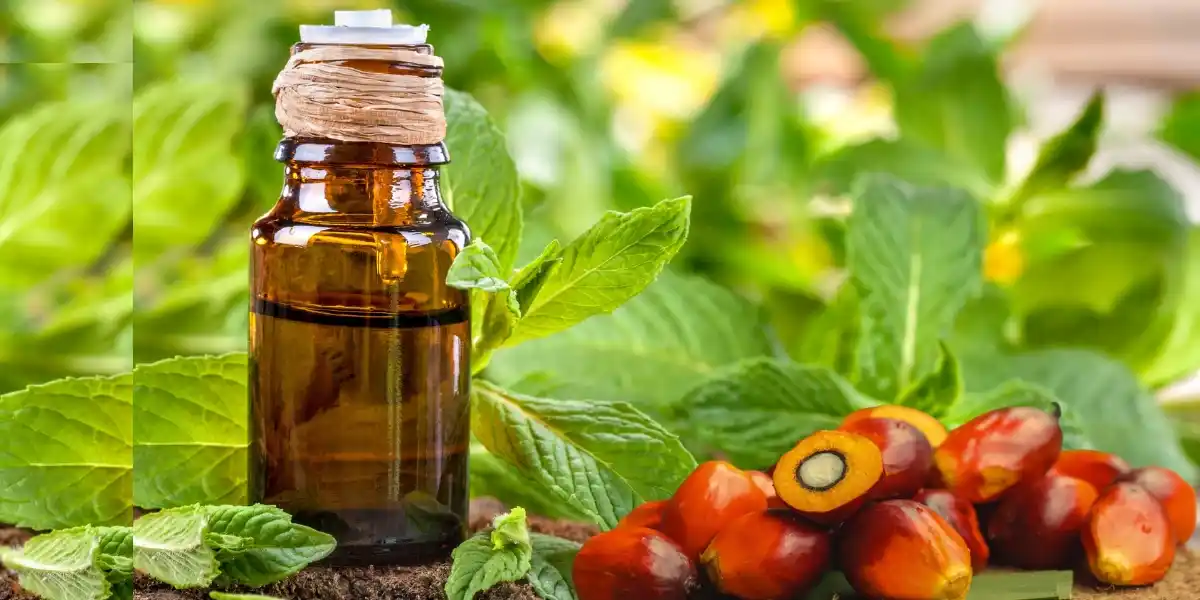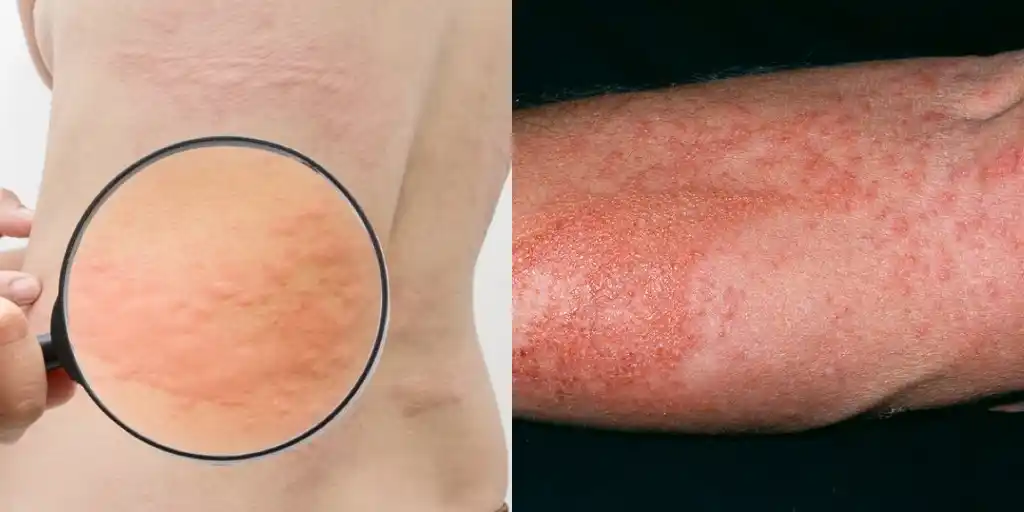Batana Oil Side Effects: On Hair, Skin and More

When it comes to natural beauty and skincare, Batana oil often pops up, especially among those who like organic products. But while it’s celebrated for its rich nutrients and hair-restoring properties, there’s another side to this exotic oil that needs your attention—its potential side effects. Understanding these side effects of Batana oil is crucial for anyone considering adding this miracle oil to their beauty routine. This comprehensive guide will walk you through various aspects of Batana oil. This includes allergic reactions, issues for different hair and skin types, ingestion hazards, how to prevent and manage these side effects and more.
Commonly Reported Side Effects of Batana Oil
While many users rave about Batana oil benefits, some report side effects. These side effects are not universal but significant enough to warrant caution, especially for first-time users. Let’s look at these side effects one by one.
Batana Oil Side Effects on Skin
Batana Oil Side Effects on Skin
One of the most concerning side effects of Batana oil is allergic reactions. Although rare, they can happen, especially if you’re allergic to nuts or seeds. Since Batana oil is derived from palm nuts, anyone with allergies should be particularly cautious.
Signs of Allergic Reactions
Allergic reactions to Batana oil can range from mild to severe. Symptoms might include redness, itching, swelling, or even hives in the area where the oil was applied. In more severe cases, users may experience difficulty breathing or face and throat swelling, which requires immediate medical attention.
Skin Irritation and Sensitivity
Even if you don’t have an allergy, Batana oil can still cause skin irritation, particularly if you have sensitive skin. The rich, thick nature of the oil can clog pores, leading to acne breakouts or a greasy feeling that’s difficult to wash off.
Tips for Minimizing Skin Issues
To avoid skin problems, always do a patch test before applying Batana oil to a large area. Apply a small amount to the inside of your elbow or wrist and wait 24-48 hours to see if irritation develops. Also, using oil sparingly can prevent clogged pores and breakouts.

Batana Oil Side Effects on Hair and Scalp
Potential for Scalp Irritation
While Batana oil is often praised for its ability to nourish and restore damaged hair, it can also cause scalp irritation for some users. This is particularly true for those with sensitive scalps or those who use oil too often.
Impact on Hair Texture
Some users have reported that instead of making their hair softer, Batana oil leaves it feeling heavy, greasy, or even brittle. This might happen if the oil is not washed properly or too much is applied.

Batana Oil Side Effects on Eye
Risks of Accidental Eye Contact
Accidentally getting Batana oil in your eyes can be painful. The thick, viscous nature of the oil can cause significant irritation and damage the delicate skin around your eyes if not rinsed out immediately.
Immediate Steps if Batana Oil Gets in Eyes
If Batana oil gets into your eyes, rinse them immediately with cool water. Avoid rubbing your eyes, as this can cause irritation. If the irritation persists, seek medical attention.
Batana Oil Side Effects After Ingestion
Toxicity of Batana Oil
Batana oil is intended for external use only. Ingesting the oil can be toxic, leading to nausea, vomiting, diarrhea, and other digestive issues. This is especially true for children and pets, who might be more susceptible to oil toxic effects.
Symptoms of Accidental Ingestion
If you or someone else accidentally ingests Batana oil, symptoms might include stomach cramps, nausea, vomiting, and dizziness. It’s critical to seek medical help immediately if ingestion occurs.
Batana Oil Side Effects for Pregnancy and Breastfeeding
Potential Risks During Pregnancy
Pregnant women should be cautious when using Batana oil. While there’s no concrete evidence that it’s harmful, the lack of research means it’s better to err on the side of caution. Some of the oil’s components could potentially affect a developing fetus.
Considerations for Nursing Mothers
Similarly, nursing mothers should consult with a healthcare provider before using Batana oil. Since substances applied to the skin can be absorbed and transferred to the baby through breast milk, it’s a must to be careful.
Batana Oil Side Effects on Children
Safety Precautions
Children have more sensitive skin than adults, which makes them more susceptible to Batana oil side effects. Always dilute the oil with a carrier oil before applying it to a child’s skin, and monitor them for any signs of irritation.
Possible Risks for Young Children
Apart from skin irritation, children might accidentally ingest Batana oil if it’s within their reach. Given its potential toxicity, it’s crucial to store Batana oil out of reach of children. Additionally, always supervise children if oil is applied to their skin or hair to prevent accidental ingestion or excessive application.

Interaction with Other Products
Mixing Batana Oil with Other Oils
Batana oil is often mixed with other oils to enhance its benefits or make it easier to apply. However, not all oils are compatible with banana oil. For instance, mixing it with essential oils without proper dilution can increase skin irritation or allergic reactions.
Compatible with Hair and Skin Products
Batana oil can interact with other hair and skin products, potentially reducing their effectiveness or causing unwanted side effects. For example, using Batana oil with certain shampoos might lead to excessive buildup on the scalp, making hair appear greasy or weighed down. Similarly, combining it with skincare products containing active ingredients like retinoids or alpha hydroxy acids could increase skin sensitivity or irritation.
Environmental Concerns
Potential Impact on Wildlife
Batana oil’s production, like many other natural oils, has raised environmental concerns. Palm nuts harvesting can disrupt local ecosystems, particularly if not done sustainably. Wildlife impact, especially in rainforests, is a critical issue that needs addressing. This is to ensure that Batana oil demand does not lead to deforestation or biodiversity loss.
Sustainability Issues
Sustainability is a concern with Batana oil. As the demand for natural beauty products increases, the pressure on palm tree resources grows, leading to overharvesting and potential depletion. Ensuring that Batana oil is sustainably sourced is vital for minimizing environmental impact.
Long-Term Side Effects of Batana Oil
Effects of Prolonged Use
Using Batana oil over an extended period can lead to both positive and negative outcomes. While some users report improvements in hair and skin health, others have noticed issues like product buildup, which can make hair look dull and lifeless. Long-term use may also exacerbate skin conditions like acne if the oil is not properly washed off or clogs pores.
Signs You Should Stop Using Batana Oil
It’s essential to monitor your body’s response to Batana oil over time. If you start noticing signs like increased skin irritation, persistent breakouts, or changes in hair texture, it might be time to reconsider your oil use. Listening to your body is crucial in determining whether Batana oil is still beneficial for you.
Batana Oil Side Effects Related to Its Ingredients
Batana oil is composed of fatty acids, including linoleic and oleic acid. While these fatty acids are generally safe, some individuals may have sensitivities or allergies to specific components.
Ingredient
Potential Side Effects, Oleic acid
Potential Side Effects
Skin Irritation, Allergic Reactions Acne Breakouts, Comedogenic
(Can Clog Pores)
User Experiences and Feedback
Positive Experiences vs. Negative Reactions
The online beauty community has mixed reviews about Batana oil. Some users swear by its ability to restore dry, damaged hair and moisturize skin. However, others have encountered side effects like allergic reactions, irritation, or unexpected hair texture changes. These mixed experiences highlight the importance of individual skin and hair types in determining how well Batana oil will work for you.
Analysis of Common Complaints
It’s essential to monitor your body’s response to Batana oil over time. If you start noticing signs like increased skin irritation, persistent breakouts, or changes in hair texture, it might be time to reconsider your oil use. Listening to your body is crucial in determining whether Batana oil is still beneficial for you.
Preventive Measures
To minimize side effects, follow these precautions:
Patch Test
Before using Batana oil for the first time, perform a patch test on a small area of skin to check for any allergic reactions.
Use in Moderation
Avoid excessive Batana oil use, as it can cause irritation or other side effects.
Choose High-Quality Products
Buy (the best Batana oil) from reputable sources to ensure product purity.
Consult with a Healthcare Professional
If you have concerns about Batana oil, consult with a doctor or dermatologist.
Management Strategies
If you experience side effects from Batana oil, consider the following management strategies:
Discontinue Use
If you suspect a severe allergic reaction or other adverse reaction, discontinue use immediately.
Seek Medical Attention
Consult a healthcare professional for diagnosis and treatment.
Over the Counter Remedies
For mild skin irritation, over-the-counter antihistamines or topical corticosteroids may relieve.
Natural Remedies
Some individuals find relief from side effects using natural remedies, such as aloe vera or chamomile.
Conclusion
Batana oil is a powerful natural product with a long history of use in hair and skin care. However, like all natural remedies, it’s not without its potential downsides. From skin irritation to environmental concerns, it’s wise to weigh the pros and cons before incorporating Batana oil into your routine. By understanding the possible side effects, taking precautions and applying different management strategies, you can enjoy Batana oil benefits while minimizing risks.
